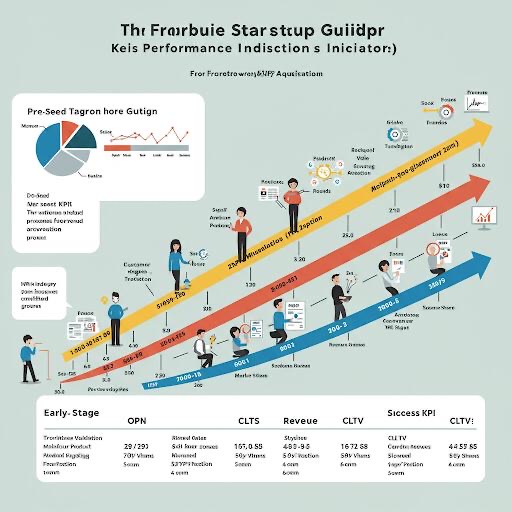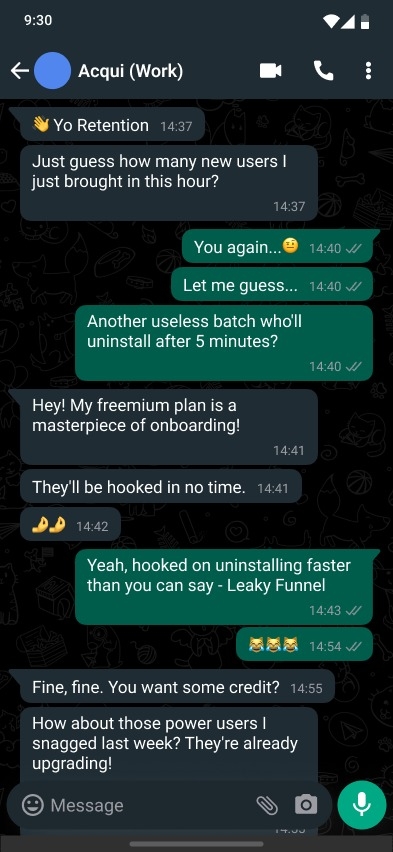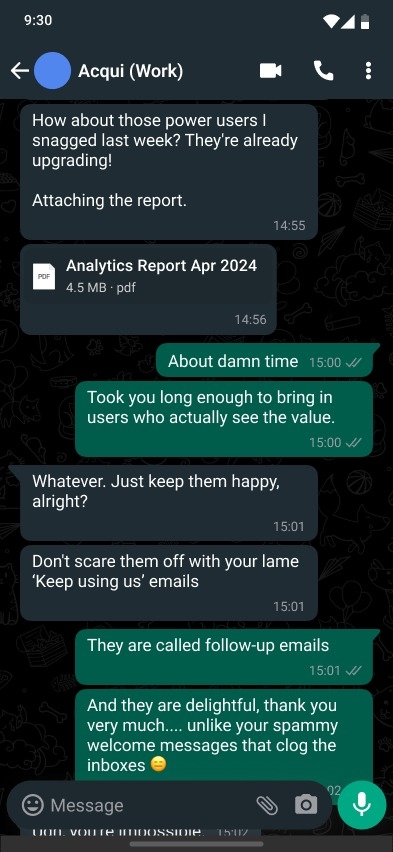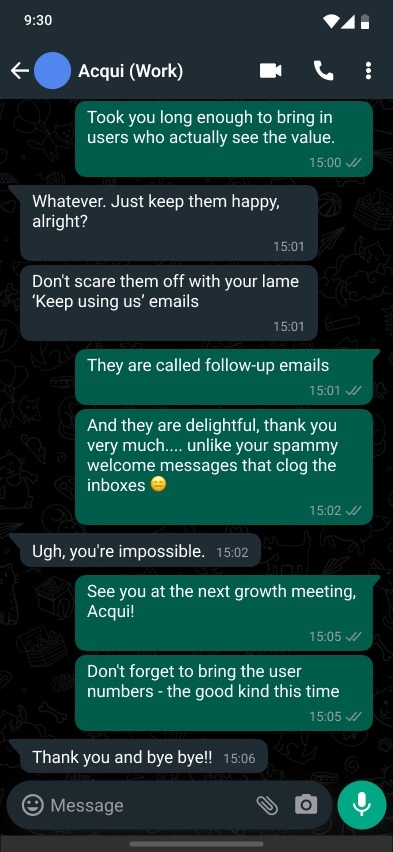Back
Anonymous
Hey I am on Medial • 5m
Imagine this. Two founders. Same starting line. Both launched their first startup: a social media app for pet owners. Both worked hard. Both ran out of money after a year. Both shut down. At this point, they looked identical. But what they did next made all the difference. Founder B — The Stagnation Arc After failing, B blames the idea. They pivot to a coffee subscription business. All prior lessons feel irrelevant. They’re back to zero. The venture fails. Years are gone. Frustrated, B switches again, this time to B2B software. Once again, new industry, new learning curve, back to zero. Three disconnected attempts. No compounding. No pattern of improvement. Burnt out, B quits startups altogether. Founder A — The Progression Arc A also fails. But instead of discarding everything, they run a post-mortem. They realize: retention (X) was weak, but acquisition (Y) was brilliant. In their next venture, a hiking community app—they reuse acquisition (Y) and redo retention (X). Faster launch. Higher quality failure. They raise a seed round. Third venture: they stack lessons from #1 and #2. Acquisition + retention + new business model. This time, it clicks. The startup grows fast and eventually gets acquired. The Lesson? Failure itself doesn’t decide your future. How you recycle lessons does. Founder B reset after every failure. Founder A stacked after every failure. Momentum compounds faster than talent, luck, or even a great idea. Next time something fails, don’t ask “What should I do next?” Ask “What should I reuse? What should I redo?”
Replies (2)
Hari kiran
Insight guru • 5m
There's a book called QUIT by Annie Duke dealing about this exact concept. Whether to quit or double down on ideas or actions .. Surprisingly there are multiple real time stories , both successful & failure in both aspects. What I mean to say is , there's no one formula that fits everyone. So many things impact the outcome like personal attributes, circumstances , market vibes, luck and many more. If you want to have a look at my review on the book, can visit my blog ( https://paradoxphilos.wordpress.com/2025/07/12/quit-the-power-of-knowing-when-to-walk-away-by-annie-duke-book-review-and-recommendation/ ). It's a great book for a read .
More like this
Recommendations from Medial
Mehul Fanawala
•
The Clueless Company • 1y
"Customer Retention" isn't just a strategy. It's an attitude. If you don't value your customers because they matter... If you don't respond to their queries because you care... If you don't genuinely want to see them satisfied... Your business mode
See MoreAarihant Aaryan
Prev- Founder & CEO ... • 1y
Last year when I was in Bangalore, I met pretty famous, well-accomplished, and highly insightful founders, one of the questions that I kept asking everyone is How do you validate an idea or how do you know if something will work or not? The reason
See MoreAarihant Aaryan
Prev- Founder & CEO ... • 1y
There's a huge difference between building a mediocre business, sizable business and a great business Here's how you can know if your idea will turn into a mediocre business, sizable business and a great business There are 3 important components
See MoreGaurav Prajapati
Student, Startup ent... • 1y
When Everything Goes Wrong What if your startup fails, and it’s entirely your fault? What if you lose everything and feel like you’ve gained nothing? Starting from scratch isn’t starting from zero. Yes, your mistakes may haunt you, and people mig
See MoreVivek Joshi
Director & CEO @ Exc... • 10m
Crucial KPIs for founders, from inception to exit: Pre-Seed: Validate your idea! Focus on Problem-Solution Fit (qualitative user interviews, early sign-ups). Seed: Prove initial traction. Track Customer Acquisition Cost (CAC), Conversion Rates, and
See More

Anonymous
Hey I am on Medial • 7m
Who do you think will make more money in the next 5 years? Let’s debate. Assume both are starting now, with similar hustle levels and no other source of income. Who wins financially? Option A: A talented influencer: good acting skills, relatable c
See MoreAccount Deleted
Hey I am on Medial • 9m
Framework: Funding + Hiring = GTM Insight(to understand a startup’s next strategic moves) Every funding round is a signal Seed/Pre-Seed - Finding PMF Series A - Building early GTM (sales/growth hires) Series B+ - Doubling down on what works: scalin
See MoreDownload the medial app to read full posts, comements and news.


















/entrackr/media/post_attachments/wp-content/uploads/2021/08/Accel-1.jpg)





















